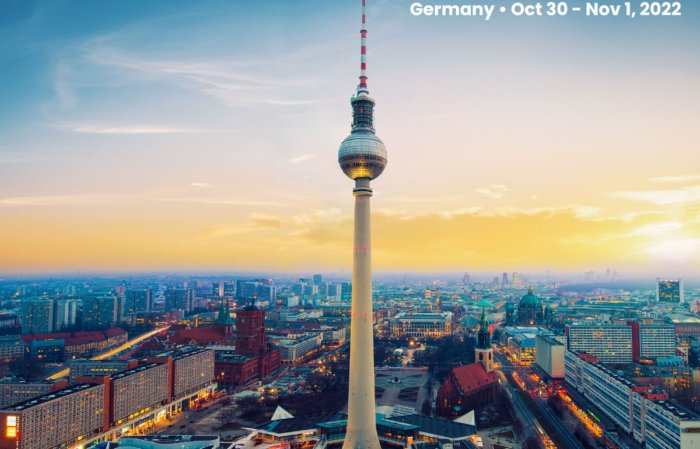
Announcing call for Submissions “No Going Back, Part Three”
Do you recall The Before Times?
For many people it was possible to travel freely, and safely. Students swapped Beijing for Boston, LA for London, Sydney for San Francisco. Education for girls and women was on the up. We knew we had to face global challenges together. This world of (relatively) free movement, educational exchange and academic acceleration was less than two years ago. We examined these themes and so much more in 2019 in Parts One and Two of No Going Back, available online here
And then a virus, and the way the world reacted to that virus, changed everything.
‘No one safe until we are all safe’ sounded good in theory, yet a co-ordinated global response was nowhere to be seen. Meanwhile, climate change became ever more real; from the waves inundating remote low-lying islands to ever more intense hurricanes across the US, from apocalyptic bush fires in Sydney suburbs to catastrophic floods on the German-Dutch border. We don’t yet know to what extent initiatives emerging from COP26 will play out.
What we do know is that a time of shared global threats has seen a response that is too often fearful, frighteningly autocratic, and worryingly isolationist.
Parts one and two of “No Going Back” recognised the dynamic new forces shaping the world of global higher education. Now, in part three, we will unpack how international education must respond to craft a new landscape to take us beyond. Re-build. Re-connect. Re-educate ourselves on what it will take to re-create a no-going-back world. For re-create it we must, as we know that education is both shaped by and shapes the world.
We want to invite your contributions to Part Three of No Going Back: how do you see the future for global higher education? How should we re-commit to the core elements of our vision, as we chart a new path? What kinds of understanding do we take with us on this journey? Part Three of No Going Back will explore a range of topics that will inform our decisions as international educators in this new operating context.
We are seeking initial short abstracts from anyone interested in contributing on the following themes, opportunities and challenges:
- What are the drivers and dynamics of the remote/virtual delivery environment?
- What do a blended approach and an increase in trans-national education (TNE) mean for your future strategy for collaborations and partnerships?
- What are the new opportunities around Collaborative Online International/Intercultural Learning (COIL)?
- How do you see the impact of AI in reshaping digital recruitment?
- Are we too obsessed with the aggregators? What has changed, really, in the opportunities and obligations we have in our outreach to students?
- What about Pandemials? How can we best serve this new generation of students who enter post-secondary education having had deeply unconventional learning and exam experiences?
- How will you be influenced as the changes in geopolitics and the global and regional economies of East and South East Asia are impacted by moves from and in China?
- Do we need to think differently about our global engagement strategies for South or Central Asia, Africa or for Central and South America to respond to changes to the shape and speed of recovery in emerging economies?
- How should we factor in vital climate change and sustainable development issues in re-shaping the global education offer?
- What are the challenges and opportunities around disruption in decentralised finance: the potential impacts of the blockchain and how students access finance?
- How do we protect and continue to champion education for women and girls? What is the reality of equity issues in global education in the future?
- Are you ready to embrace the metaverse, or still mastering MailChimp?
- What are the emerging issues in our field?
If these topics aren’t capturing the imperatives that you see, what should we include?
Above all, your contributions should respond to the core theme of the book overall: that thoughtful consideration of evidence-based insight creates the best opportunity for intentionality and creative strategies to better serve the future of our global education field, our institutions and organisations, and the students and communities they serve. In a Covid-19 dominated world, this is more important than ever because there’s no going back….
Submitting your ideas
At this stage, we’re looking for no more than a 300 word abstract to express your point of view, your insight, your sense of strategic imperative, on any of the topics detailed above, or indeed anything you think we have missed.
We ask you please to submit your ideas and the format you’d like to use, by December 13th via email to Pamela Barrett: that’s pamela@bartoncarlyle.com.
We’ll make our final selection of contributors by January 10th 2022 with copy due by February 14th for a publication date of April 28th 2022.
A quick note on the rules for submission
- We can accept (and welcome) co-authored submissions, and submissions from professionals newer to the international education field.
- Contributors do need to have direct experience as a professional in the field in the subject about which they propose to submit a piece.
- Pieces should not promote a particular commercial product or service.
- The piece must not have been published previously elsewhere.
- While we are not expecting solely scholarly articles, this form of article is welcome.
- All contributions should conform to referencing best practice. In this way, we all contribute to the greater knowledge of our field.
- Contributors agree to having their pieces edited for content and to fit format.
- Word limits apply to the three different types of submission:
- Short, sharp points of view: opinion pieces, conversation starters, provocative or challenging views: 600 – 900 words.
- Focussed features: short, informed magazine-style pieces: 1,000 – 1,800 words
- In-depth major topics: examinations or reflections on any of our major topics that are more in-depth and cover multiple perspectives and analysis (of a country/region or subject for example): 2,000 – 3,500 words
Review Group
To select contributors and oversee content we have assembled a group of experienced international education professionals representing different aspects of our industry:
- Delia Heneghan, Vice-President, Global Education Practice, SannamS4
- Tony Lee, CEO Global Young Minds, and Chief Visionary Officer, ICEF
- Douglas Proctor, Pro-Vice Chancellor, Global Engagement, Swinburne University
- James Richardson, Director of Global Development & Partnerships, Sheffield Hallam University.
We look forward to reviewing your ideas.
Pamela Barrett, CEO, Barton Carlyle


